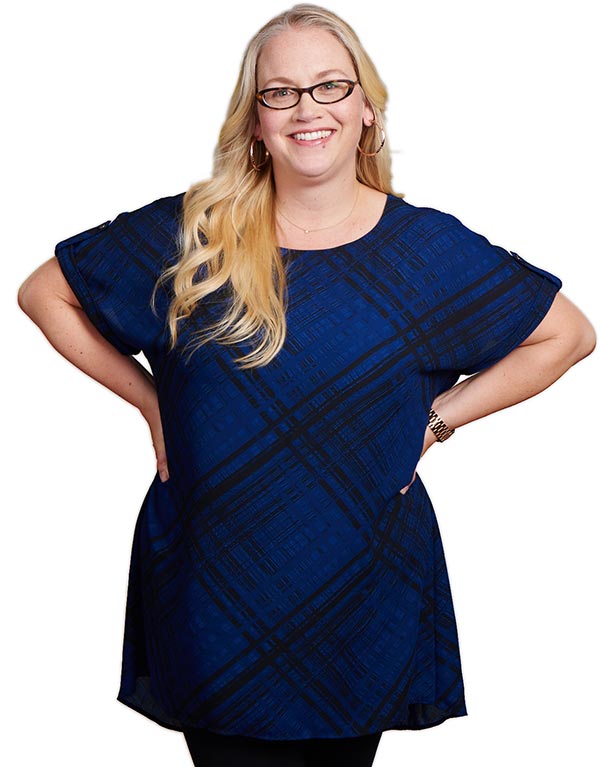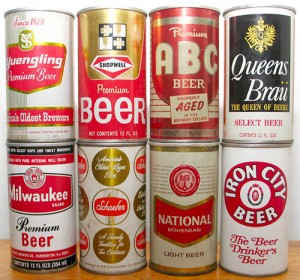 Hi all. This 20-year-old HealthyGirl.org reader sent me an e-mail asking not only for my help, but for all of yours. She feels really stuck in a cycle of hardcore bingeing right now and can’t seem to find her way out. Give a read and then, in the comments, please tell her how you dealt when you were in a bad place like this. I’ll do the same. xo…Sunny
Hi all. This 20-year-old HealthyGirl.org reader sent me an e-mail asking not only for my help, but for all of yours. She feels really stuck in a cycle of hardcore bingeing right now and can’t seem to find her way out. Give a read and then, in the comments, please tell her how you dealt when you were in a bad place like this. I’ll do the same. xo…Sunny
I’m 20 years old and since last summer have been struggling with eating issues. At first the bingeing was sporadic (and maybe made sense since I had been depriving myself [with a diet]) but then a few months ago it started happening multiple times a day and can go for days at a time—from early in the morning to late at night, I won’t stop eating, trying to get as much “bad” food into myself as possible, no matter how sick I feel.
It’s probably over 20,000 calories per day, no exaggerations. A full day binge might include: 4 muffins and a croissant for breakfast, giant sandwich with french fries an hour later, 3 milkshakes, ice cream, a huge burrito, 3 bags of chips, another sandwich, a pizza, and candy. I actually don’t understand how one person can fit that much food inside her, but I somehow do so on a daily basis.
As expected, it makes me feel awful, mentally and physically. It’s especially bad because I’m currently studying abroad and feel like all this obsessing about food (combined with the secret eating, avoiding plans to eat alone, etc.) are detracting from this exciting time in my life.
The problem is I can’t get myself to commit to stopping the binges. I’ve talked to therapists, read yours and a ton of other helpful resources, have tried keeping a food diary, am very open with my mom, etc. I know in the end I have to be accountable to myself, but don’t know how to get myself there. I know my triggers and I know all the strategies, but once I’ve resolved to eat, I just don’t care about them. Like I know when I’m alone for long periods of time or doing homework in a cafe with yummy treats, I put myself at risk, but I continue to do it anyway, lying to myself that it will be different this time. In fact, during most of my binges, I’ll sit online and literally read about how to stop bingeing—but don’t!
It’s almost like there’s something deep down that doesn’t want me to stop. I’m always in physical pain and want to cry when I look at myself in the mirror (I’ve gained 15+ pounds in 3 weeks since getting here). But instead I just eat more. It’s almost like I don’t have *enough* guilt about what I’m doing.
So, for those of you who are recovering, how were you able to actually commit to yourselves? I feel like I promise to “start over” multiple times a week, and it never lasts, which just makes me more depressed and hopeless. Thank you so much for any help! —Jane*
[*not her real name :)]





Hi Jane. When I was at my absolute worst, I think I felt a lot like you are feeling: Yeah, I’d talked to my therapist about my eating and it hadn’t really helped; yeah, I understood that I was eating for emotional reasons; but I was stuck in my head unable to take action.
I finally “hit bottom” I guess and realized that if I didn’t do something drastic I was never going to have the life I wanted. I knew bingeing was getting in the way of my success at work, I knew bingeing was getting in the way of me finding a partner and I felt totally…broken down.
I decided that I needed to do something different than I’d ever done before. What was it: Go to a support group. It may not sound that drastic, but, honey, it spun my head around big time. I went to a 12-step-style group that had very firm guidelines about ways to pull yourself up out of the bingeing and I needed that structure at the time; I got myself a mentor or “sponsor” in the group who I had to call every single day to check in with. Talk about a commitment! Slowly but surely, (and I do mean slowly), things started changing. It was the best thing I ever did for my recovery.
Read about how to find a support group here, and, just so you know, there are meetings like this all over the world! Not only that, but Eating Disorders Anonymous and Overeaters Anonymous both have phone meetings that you can call into from anywhere in the world (OA has online meetings, too). Please let us know how you’re doing and know that you’re not alone! xo…Sunny
I’m in the beginning of what I would call recovery. I’ve only recently realized that there are more to eating habits and relationship with food than lack of willpower.
For me, for now, I take things on a day by day basis. And if I have a bad day or a binge day, I forgive myself. Just because I ate a chocolate cake for dinner (or whatever), doesn’t mean I am a bad person or a weak person or an unworthy person. It means that I made a mistake and so I literally breath and let go.
I also find that along with recording what I eat, I record when I want to eat. Instead of bingeing, I write down what I feel at that moment which is helping me discover my triggers as well as in some cases resist the binge.
And finally for me, I try to move at least 30 minutes a day. It can be some yoga, a walk, at the gym or some strength moves and dancing in my living room but I do it. EVERYDAY. It keeps me centered and focused and reduces stress and helps to remind me that food is for fueling my body and my daily activities and not to cope with my boredom.
Best of luck.
Yes, forgiveness, yes! That self-hate and guilt that we all hang on to at first only makes us want to eat more to cover up the pain. Forgiveness is key. And I also find that exercise helps me stay sane—about food, my body and in general! Thanks for weighing in, Shady. xo…Sunny
Hi Jane!
Reading your story made my heart ache, because I can definitely relate. Studying and living abroad is a HUGE adjustment. Even bigger than going to college, because you are in a totally foreign place where many things are completely different and it can easily throw you for a loop. I definitely remember when I went abroad that my focus on food intensified and I gained weight (as did most of the girls on my program). I spent a lot of time alone while I was abroad, sort of wandering around-it can be very isolating. I studied a lot in cafes and would often find myself nibbling on pastries and other rich foods and sort of passing the time by. The term “comfort food” is there for a reason. Food is a very easy way to get some instant comfort (and control when you feel like everything is new and not routine). When nothing else feels familiar, food will always give you that same feeling of safety, constancy and comfort. The feeling of being full can also temporarily make you feel okay in a situation where you don’t!
All of the food and continuous bingeing could be a result of you feeling unsettled and in a big transition and way out of your comfort zone. Even though it might sound strange, sometimes it is easier to focus on how terrible you feel, and confused to why you are doing behaviors that you don’t want to be doing, instead of looking at what’s really going on.
Sometimes the most difficult part is to just STOP! I also don’t think that it is a matter of you not feel guilty enough or not to stop. In fact, I think it’s the opposite in that it is important to check-in with yourself and maybe look at some of the reasons why you might be in this kind of self-sabotaging cycle. I really do understand this feeling of wanting to stop and not being able to. Sometimes when you’ve gotten yourself into something like this, trying to “figure out” what is going on (like searching online for advice, etc) before stopping the behavior may just take too long-interrupting the cycle is important, then giving yourself time to sort through what’s been going on and going from there.
I found that the longer I let this go on while I was abroad, the worse I felt and the more and more isolated I became. I didn’t want to go out as much with my friends on the program, I felt so uncomfortable in my body that I became even more shy in trying to use the language with locals (even though I was good at it) and it really detracted a lot from my experience. By the end, I felt more comfortable being there and I had sort of figured out some of my food stuff, and things felt a better.
Something you could do more immediately is to try a different activity that feels familiar and comforting to you. That could be a whole host of things, but I will tell you what I did: There was a Blockbuster (it felt so American and out of place, but familiar and great when everything else was so different) around the corner from my host family’s apartment and I rented seasons of American TV shows. When I had time alone after class or something, instead of going to a cafe or eating, snaking or buying food, I would watch an episode (or a few) of those. I can’t say this was a great way to take in the culture of where I was, but it was a comfort that wasn’t food that I could use as a back-up. At first, I watched a bunch, and as I got more comfortable I slowly tapered off and watched less. I am not sure what your situation is-if you have a computer or internet or a video store, but check it out if you want to give it a try.
I also studied with a friend from one of my classes in cafes, where I was less likely to overeat when she was there. Even if you haven’t found someone you feel totally comfortable hanging out with one-on-one yet, asking someone if they want to read or study at a cafe can be a really nice way to reach out and have some company. You don’t even need to talk that much seeing as you would be doing work or reading, etc. The power of having someone just sitting at the same table as you can be comforting.
I don’t know what the weather is like where you are right now, but another great thing that I did that really helped was taking long walks. I was in a beautiful city and to be able to explore that way was great. I also couldn’t really eat tons of things while walking. As long as you feel safe and everything, maybe try exploring. I found it really meditative and a nice time to see new things in a casual way and at my own pace. I stumbled upon some great hidden treasures this way and really got to know my way around. Bonus-feeling better in my body and getting some exercise and fresh air. Sitting in parks and reading or people watching is another great thing too!
Best of luck Jane! I hope things get better. Studying abroad is a really wonderful opportunity and I am sure you want to get the most out of it, and it can be a really big transition at first. Hang in there.
Morgan, these are great suggestions! You are a gem-and the HealthyGirl.org community (and me) are so lucky to have you. xo…Sunny
Hi Jane! I’ve been lurking around here for several months now but I haven’t posted until now. Your story really got me. I was abroad a year ago and dealt with exactly the same issue. A new place?! With new foods?! And pastries??!!
Every time I’d binge in my room abroad, I told myself that tomorrow I’d be starting over, etc etc, (which, thanks to this site, I’ve learned is a common mistake we bingers make). And I’d beat myself up for spending hours alone so I could eat, when I should be out seeing this incredible new place. And then, because I was alone and lonely and homesick, I’d set myself right up for another cycle of bingeing. It was a really miserable mental state.
I don’t want to offer advice because I don’t think I’m at all qualified to give it, but if I could go back and say something to myself that semester I spent abroad, it would be this: Emily! Do you really want to eat that? Really?…..Okay!
There are so many things I did and foods I tried while I was abroad that I’d NEVER regret, even though it showed up in my jeans. But there were a lot of times I was eating and hating myself even as I was taking the bites. I didn’t really want that food.
I’ve since adopted a no-guilt stance of, “I eat what I want, but I want what I eat.” And by “wanting” I don’t even mean “hungry.” There are plenty of times I eat not for the express purpose of satisfying hunger. But I’ve been able to cut out that really harmful eating by acknowledging to myself, No, I don’t really want that. I’m either too full for that, or I know that eating that will make me tired, or feel like a bowling ball in my belly that will make me want to stay inside in my pajamas tonight, and there’s too many fun things to do in the world! Then again…if I want it, dude, I eat it.
And that’s left me happier and healthier and saner and able to really enjoy my food.
That one phrase has tipped the scales of binge-eating recovery in my favor, so I just wanted to share it in case it could helpful to you, too. Best of luck.
Wow, Emily — I love that line: “I eat what I want, but I want what I eat”. Part of my biggest problem bingeing was being on auto-pilot and just eating until I felt like I would explode, rather than thinking about whether the food I was putting in was really what I wanted. Did I really WANT this Ring-Ding? Or did I actually want a date for my school’s formal? Once I started thinking more about the food I wanted, it was easier to quit the binge. GREAT advice and a wonderful way to think about it!
Hi Jane,
I was recently in your same boat but my anxiety came from being a senior in college and not knowing where I was going with my life. One of the best things that I did to cope with my binges was run. I was never a runner growing up and then one day I decided that I would try it (more because I thought I could run away from my problems).
I could barely make it to the end of the block the first time but I continued to improve, and soon I was running everyday. Regardless of how far I ran, moving around made me realize how strong my body is and also helped settle some of the emotions that I was feeling. Plus, it physically separated me from food. If it is not in your site, it is easier to forget about. Even when I was tired I would alternate running short distances with walking. I was able to get the same feeling that food gave me by releasing adrenaline and getting my heart pumping.
I know running or walking is not for everyone but I encourage you to find something that you can do at the drop of a hat anytime you feel the emotions creeping up on you. The more activities that you can do that make you happy, will help you get past this difficult time in your life. Take it from a recovering binger, you will and can get past this.
We are a beautiful person regardless of what you mind says and you deserve to be happy.
“Jane” sent me a note to say how helpful she found all of your notes and suggestions! Thank you so much for making this community a safe, supportive place where girls and women can work on their recovery, guys.
Jane – I’m a little late to the party, but I want to add some thoughts on how I started short-circuiting my binges.
First, I started to recognize the role that binges play in my life. I would acknowledge that I was using food to numb feelings. I would also recognize that I had no idea what those feelings were, but I knew that I didn’t want to feel them. Every now and then, that was enough to make me write in my journal to see if I could explore my head and figure out what those feelings were. That would occasionally put a stop to a binge.
Second, I made bingeing a choice. I decided that I wasn’t restricted to the straight-and-narrow of “being good” and “being bad.” I told myself that I could eat whatever I wanted, whenever I wanted. As soon as I gave myself permission to binge, some of the appeal evaporated. (Not all of it, but it was much less alluring to binge when it wasn’t forbidden.)
Third, I forgave myself when I did binge. Sunny’s right, it’s one of the most important things you can do. I think it was Morgan who described a few weeks ago how she writes letters apologizing to her body. That’s brilliant and I do that sometimes. And I give it a twist - when I forgive myself, I forgive my thighs for being fatter than I want and I forgive my belly for holding so much food and I forgive my heart for hurting so much and I forgive my head for being so confused and lost and unsure of the path forward. And be patient with yourself. Judith Beck (another great ED author) writes about exercising your resistance muscle. The first few times you do it, your muscle is weak and out of practice. Then you do it more often and your resistance muscle gets stronger.
Fourth, I started to explore my sense of self-worth and whether I deserve to be loved. This is a very hard one. I’m working on reconnecting with God, and it helps to know that God loves me no matter what, no matter if I’m skinny or fat, no matter if I’m right or wrong, no matter if I’m perfect or imperfect. Faith is so personal, but it’s been a big encouragement for me.
I’ve also found that there are activities I can do regularly to help me feel more empowered and sane:
Exercise. If I’m exercising regularly, I naturally feel better about my body. If my exercise falls off, I hear negative self-talk way more often.
Reading. I voraciously read literature about eating disorders. Geneen Roth is one of my absolute favorite authors on the subject – she writes with all the kindness, honesty and gentleness that I wish I could give myself.
Support group and therapy. I attend a support group at least once a week and sometimes more often. Talking about it takes me out of my head and makes it seem less scary. Hearing other people’s stories make me feel less alone.
Praying. I’m very imperfect about praying, but I’m trying to say grace before I start a meal or even a binge. Something about thanking God for what I’m about to put in my body puts my head in a very different space.
On the question of studying abroad, I couldn’t agree more with Morgan. It’s so much easier to feel fat and awkward than it is to feel scared or lonely. But you will feel so much better when you focus on your real feelings. When I was abroad, I would also find “American” things like books to feel less lonely and sometimes that worked.
I’m not remotely fully recovered. And I’m certainly not perfect at following all of these steps. (And I have figured out that I have to forgive myself for being imperfect at being imperfect…)
So that’s a long reply to say that sometimes this journey can be so exhausting and seem so hopeless, but I promise there is hope.
[…] been a ton of great tips and personal experience shared on how to get started on recovery: What’s Your Advice For This Binge Eater? What it Takes To Go From Sick and Stuffed to Strong and Healthy The Book That’s Helping One […]
[…] time and has started to question whether she’s maybe just…a lost cause. She’s written in before and found all of your advice really helpful, but says she just can’t seem to make it stick. Ready to weigh in? We ALL hit […]